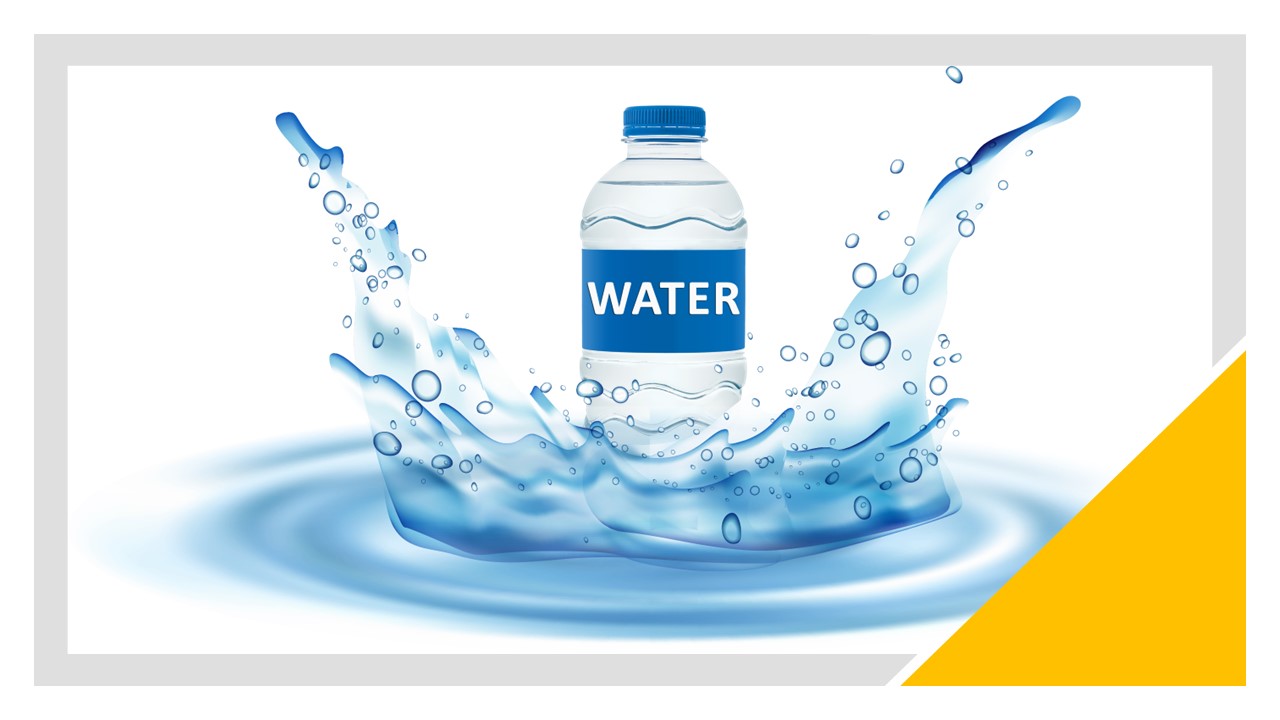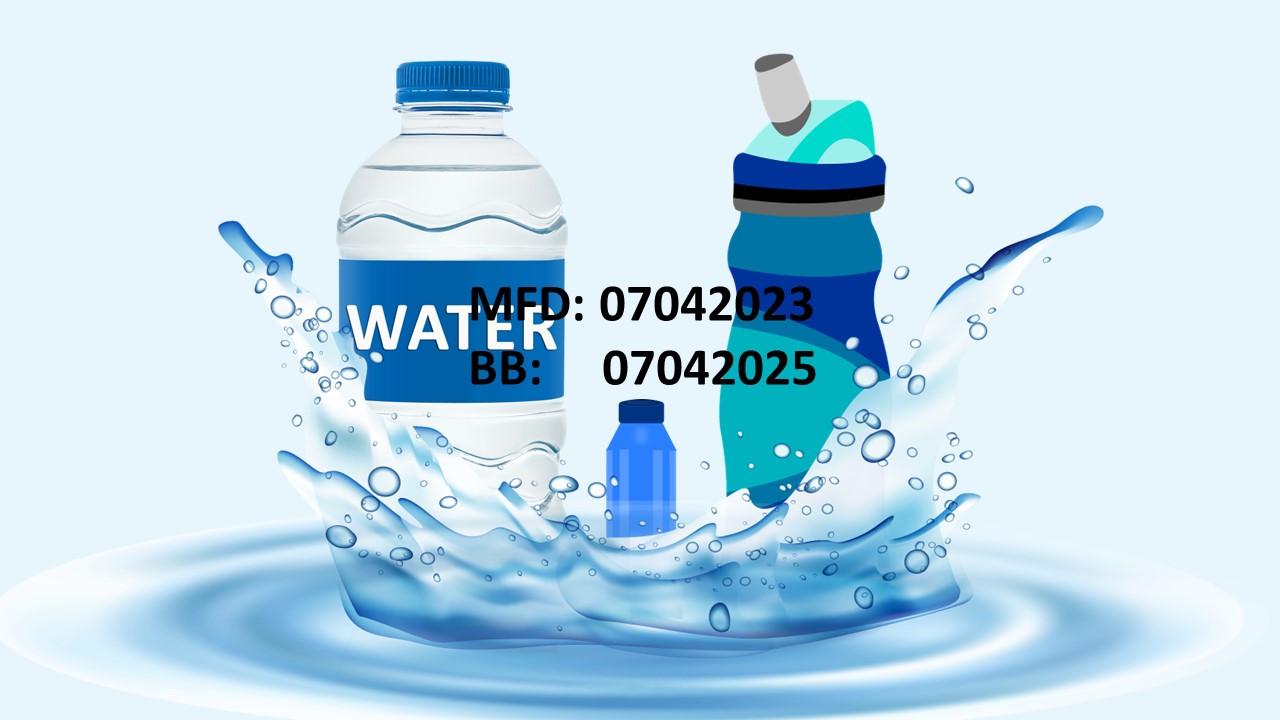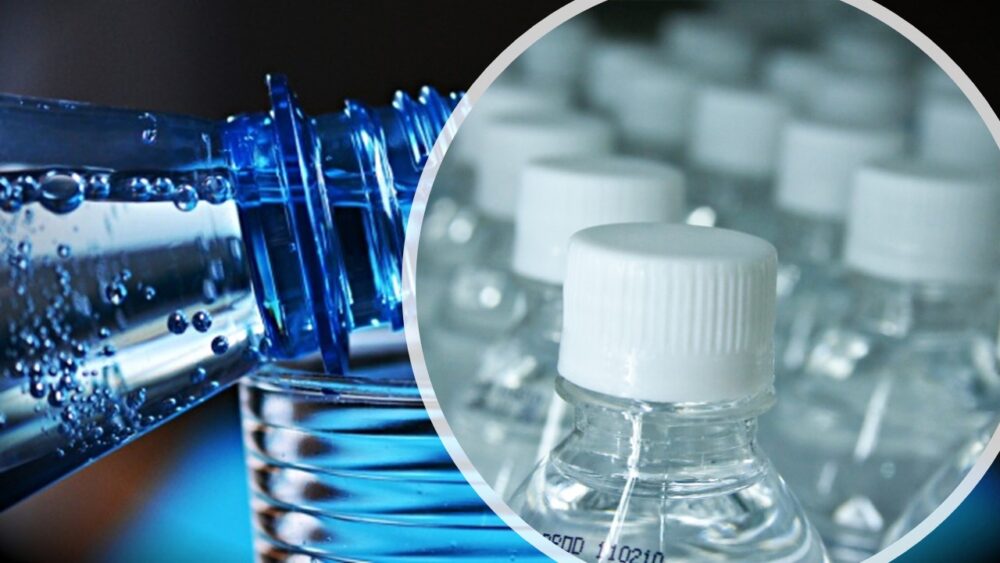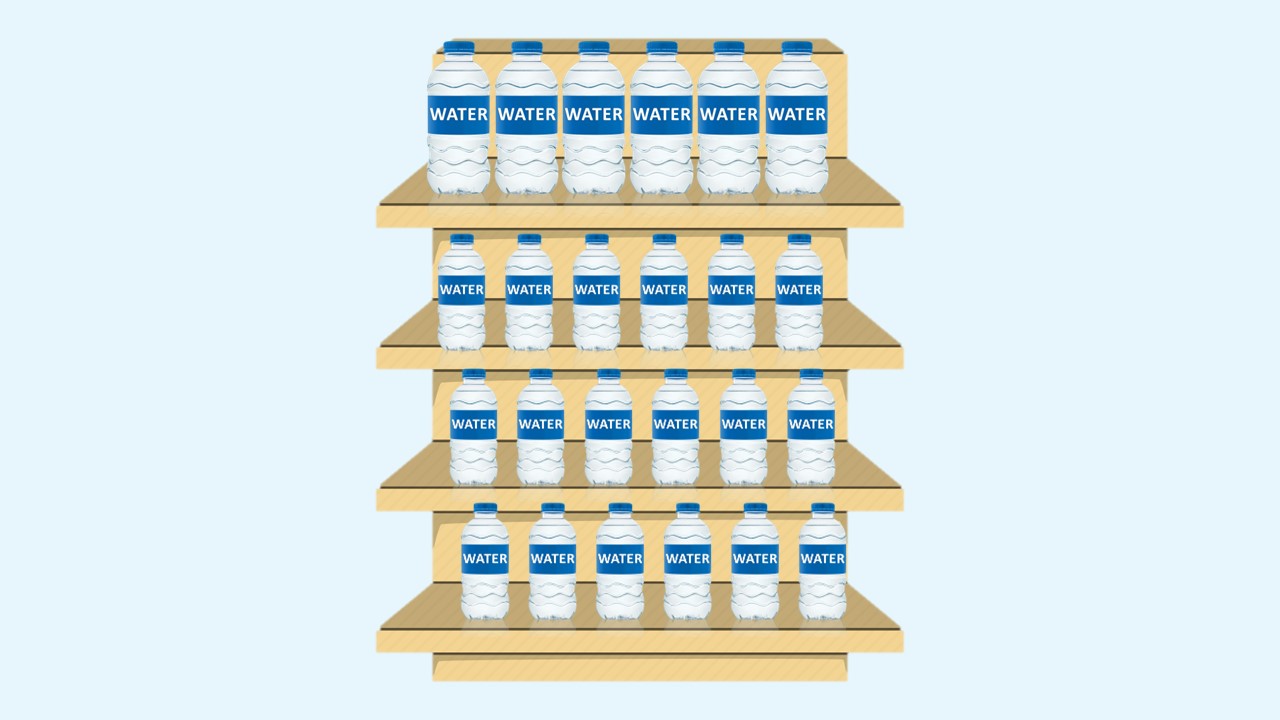Bottled Water Tastes Like Chemicals – What To Do
Does your bottled water tastes like chemicals? You are not alone! Did you know that the bottled water you drink could taste like chemicals?
According to a study conducted by the Environmental Working Group, many popular bottled water brands contain high levels of chemicals such as chlorine, fluoride, and other minerals, which can lead to an unpleasant taste and potential health risks.
This issue is so prevalent that people are actively searching for solutions online. In this article, we’ll explore the possible reasons why your bottled water tastes like chemicals and provide tips for improving its taste and quality. So, read on to discover how to get the most out of your H2O.
Why Bottled Water Tastes Like Chemicals
There are several potential causes of the chemical taste in bottled water. Here are some of the most common reasons why Bottled Water Tastes Like Chemicals:
1. Chlorine
Chlorine is a common disinfectant used to kill harmful bacteria and viruses in drinking water. However, it can also give water a chemical taste and odor, especially if it’s present at high levels.
According to a study published in the National Institute of Health, bottled water brands that use chlorine as a disinfectant may have higher levels of trihalomethanes, a group of chemicals that can cause an unpleasant taste and potential health risks.
2. Fluoride
Fluoride is a mineral that is added to many public water supplies to help prevent tooth decay. However, some bottled water brands also contain fluoride, which can give the water a chemical taste and odor.
A study published in the National Institute of Health found that some bottled water brands had fluoride levels that exceeded the recommended limit set by the Environmental Protection Agency. This can cause bottled water to taste like chemicals.
3. Other Minerals
Bottled water can also contain other minerals such as calcium, magnesium, and potassium, which can give it a metallic or mineral-like taste.
According to a study published in the NCBI, the taste of mineral water is influenced by the presence of minerals and their concentrations. High levels of certain minerals can make the water taste bitter, salty, or sour.
4. Plastic Taste
Bottled water can sometimes taste like plastic, especially if it’s been stored for a long time or exposed to high temperatures. This is because some types of plastic can leach chemicals into the water, which can give it a chemical taste and potential health risks.
A study found that some types of plastic bottles can release chemicals such as antimony and bisphenol A (BPA) into the water. This can cause chemical taste in bottled water and potentially pose health risks.
5. pH Levels
The pH level of water refers to its acidity or alkalinity. If the pH level of bottled water is too high or too low, it can give the water a chemical taste. Water with a low pH level can taste sour or metallic.
6. Contamination
Bottled water can become contaminated with chemicals such as benzene and styrene during the manufacturing or bottling process.
According to a study published in the Journal of Environmental Sciences, some bottled water brands had levels of benzene and styrene that exceeded the safety limits set by the World Health Organization. These chemicals can give the water a chemical taste and pose potential health risks.
7. Storage Conditions
The taste of bottled water can also be influenced by the way it’s stored. If bottled water is stored in a warm or sunny place, it can become stale or develop an off-taste.
According to a study published in the NCBI, the taste of bottled water can be influenced by the temperature, light exposure, and storage time.
The Health Risks Associated With Drinking Bottled Water That Tastes Like Chemicals
If your drinking bottled water tastes like chemicals, it can pose potential health risks. Here are some of the health risks associated with consuming water that has a chemical taste:
1. Increased Risk Of Cancer
Though the result is not consistent, a study showed exposure to high levels of trihalomethanes (THMs), a byproduct of chlorine disinfection, can increase the risk of bladder cancer, colon cancer, and rectal cancer. THMs are a group of chemicals that can give water a chemical taste and odor.
2. Dental Fluorosis
Fluoride is added to public water supplies and some bottled water brands to help prevent tooth decay. However, excessive consumption of fluoride can cause dental fluorosis, a condition that affects the appearance and strength of teeth.
According to a study, consumption of water with fluoride levels above the recommended limit can increase the risk of dental fluorosis.
3. Gastrointestinal Problems
Consuming water with a high concentration of minerals such as calcium and magnesium can cause gastrointestinal problems such as diarrhea and constipation.
A study showed that drinking water with high levels of calcium and magnesium can cause gastrointestinal symptoms such as bloating, nausea, and stomach cramps.
4. Endocrine Disruption
Bisphenol A (BPA) is a chemical used in some plastic bottles to make them more durable and flexible. However, BPA can leach into the water and cause endocrine disruption, a condition that affects the hormonal balance in the body.
Research showed that exposure to BPA can increase the risk of breast cancer, prostate cancer, and other hormone-related diseases.
5. Neurological Problems
Some chemicals such as benzene, which can contaminate bottled water during the manufacturing or bottling process, can cause neurological problems such as headaches, dizziness, and confusion.
According to a study published in the American Cancer Society, exposure to benzene can increase the risk of leukemia and other blood-related diseases.
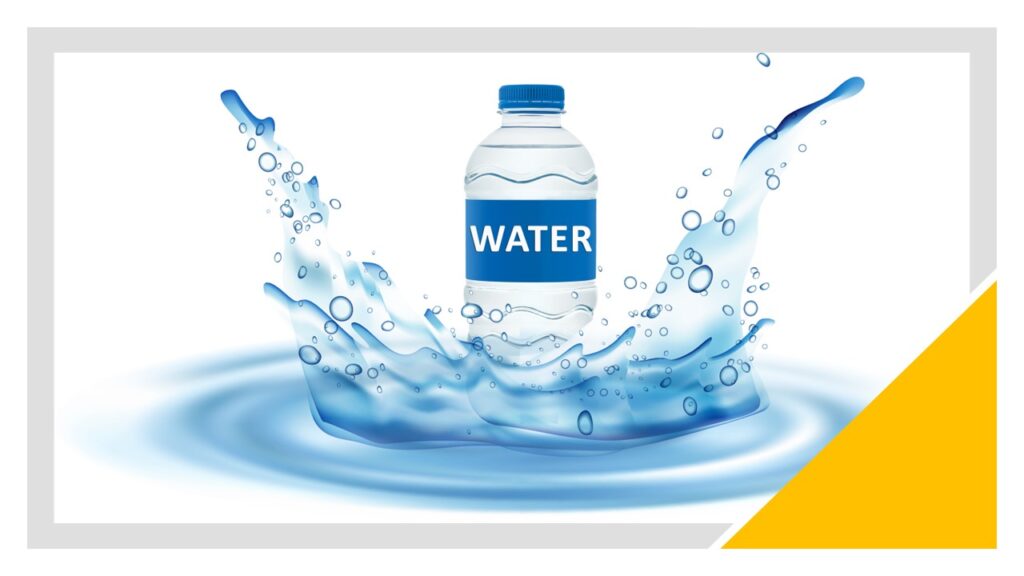
The Importance Of Choosing High-Quality Bottled Water Brands That Have Undergone Rigorous Filtration And Purification Processes
If your Bottled Water Tastes Like Chemicals, it may pose some health risks. Choosing high-quality bottled water brands that have undergone rigorous filtration and purification processes is essential for several reasons:
1. Ensuring safety: Bottled water brands that have undergone rigorous filtration and purification processes have eliminated potential contaminants such as bacteria, viruses, and chemicals that can be harmful to human health.
The filtration and purification processes can remove harmful substances, ensuring that the water is safe for consumption.
2. Improving taste and odor: High-quality bottled water brands that have undergone rigorous filtration and purification processes have a better taste and odor than water that has not undergone these processes.
Removing impurities and chemicals from the water can improve its taste and odor, making it more appealing and enjoyable to drink.
3. Meeting regulatory standards: High-quality bottled water brands that have undergone rigorous filtration and purification processes meet regulatory standards set by the government and industry organizations.
These standards ensure that the water is safe for consumption and meets certain quality criteria.
4. Protecting the environment: Some brands use sustainable practices such as using recycled plastic and reducing carbon emissions during the manufacturing and transportation of bottled water.
5. Supporting responsible business practices: Choosing high-quality bottled water brands that have undergone rigorous filtration and purification processes supports companies that prioritize responsible business practices.
These companies invest in sustainable practices, support local communities, and adhere to ethical standards.
6. Convenience and accessibility: Bottled water is a convenient and accessible source of clean drinking water, especially in areas where the quality of tap water may be questionable.
High-quality bottled water brands provide a reliable source of safe drinking water, even in areas where access to clean drinking water may be limited.
7. Improved hydration: Drinking water is essential for maintaining good health and hydration. Choosing high-quality bottled water brands can help ensure that you are consuming water that is safe and beneficial for your health.
8. Specific health benefits: Some high-quality bottled water brands also provide specific health benefits.
For example, some brands may contain naturally occurring minerals such as calcium, magnesium, and potassium that can contribute to good health and wellbeing.
9. Transparency and trust: Choosing high-quality bottled water provides transparency and trust in the product.
These brands are transparent about their manufacturing processes, water sources, and quality standards, allowing consumers to make informed decisions about the bottled water they consume.
Tips For Improving The Taste Of Bottled Water
It is no news that some Bottled Water Tastes Like Chemicals. But there are various ways to improve the taste of your bottled water. Here are some best ways to improve the taste of your bottled water:
- Add lemon or lime juice: Adding a squeeze of lemon or lime juice to your bottled water can help improve the taste and give it a refreshing citrus flavor. The acidity of the citrus fruit can also help balance the pH levels in the water, reducing any chemical taste.
- Use a water filter: Using a water filter can help remove impurities and chemicals from the water, improving its taste and odor. There are various types of water filters available on the market, including pitcher filters, faucet filters, and countertop filters.
- Store the water in a glass container: Storing bottled water in a glass container instead of plastic can help improve the taste by eliminating any residual flavors or odors from the plastic. Glass containers are also more environmentally friendly and can be reused and recycled.
- Chill the water: Chilling bottled water can help improve the taste and make it more refreshing. You can store the water in the refrigerator or add ice cubes to the water.
- Try different brands: Not all bottled water brands taste the same. Trying different brands can help you find one that you enjoy and that meets your taste preferences.
- Avoid exposure to sunlight: Exposure to sunlight can cause chemical reactions that can affect the taste of bottled water. It’s best to store bottled water in a cool, dark place away from direct sunlight.
- Use a water enhancer: There are various water enhancers available on the market, such as flavor drops or powder packets, that can be added to bottled water to improve the taste and add flavor.
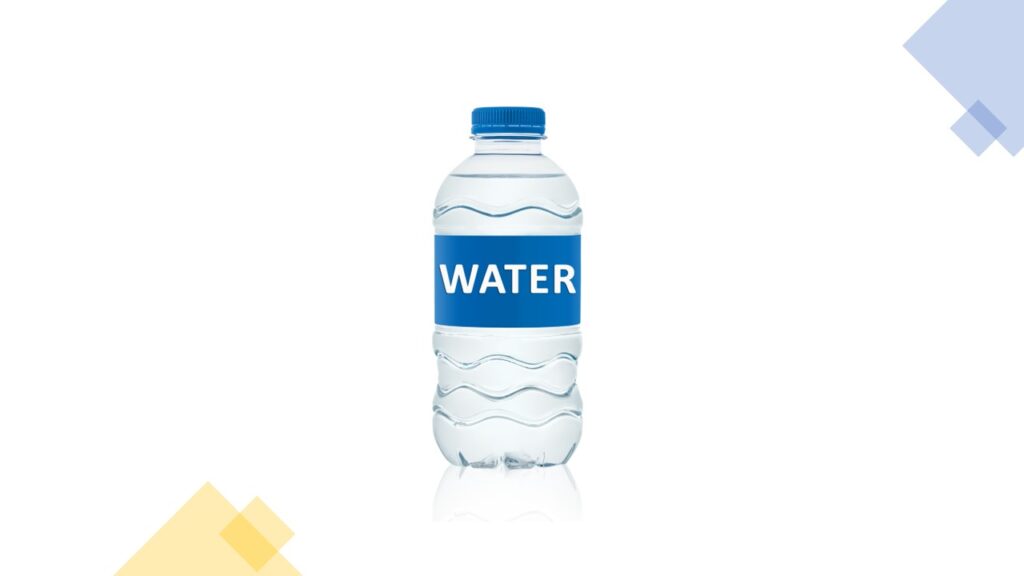
Alternatives To Bottled Water To Avoid Drinking Bottled Water That Tastes Like Chemicals
If your Bottled Water Tastes Like Chemicals, there are several alternatives to bottled water that you can consider:
1. Home Filtration Systems
A home filtration system is a great alternative to bottled water. It can help remove impurities, chemicals, and contaminants from tap water, making it safe and clean for consumption.
There are various types of home filtration systems available, including countertop filters, under-sink filters, and whole-house filtration systems.
2. Tap Water
If your tap water meets safety standards, it can be a great alternative to bottled water. Most municipal water supplies are regulated by the Environmental Protection Agency (EPA) and must meet strict safety standards before it’s considered safe for consumption.
You can check your local water supplier’s annual water quality report to ensure that your tap water meets safety standards.
3. Refillable Water Bottles
Refillable water bottles are a great alternative to single-use plastic water bottles. You can fill them up with tap water or filtered water and take them with you on the go. They are also environmentally friendly and can help reduce plastic waste.
4. Water Coolers
Water coolers are a great alternative to bottled water in the workplace or at home. They provide a continuous supply of cold and hot water, and you can refill them with tap water or filtered water.
5. Boiling Water
Boiling water is an effective way to remove impurities and contaminants from tap water. Boiling water for five minute can kill most types of bacteria and viruses, making it safe for consumption.
6. Water Pitcher Filters
A water pitcher filter is an affordable and convenient way to filter tap water at home. These filters can remove impurities and contaminants such as chlorine, sediment, and heavy metals, improving the taste and quality of tap water. They are easy to use and require minimal maintenance.
7. Distilled Water
Distilled water is a type of purified water that has gone through a process of distillation, where it’s boiled, and the steam is collected and condensed back into water. This process removes impurities, minerals, and contaminants from the water, making it pure and safe for consumption.
8. Spring Water
Spring water is naturally sourced water that comes from a spring or underground source. It’s usually filtered naturally by the earth and contains minerals that can be beneficial for health.
Why Does My Tap Water Tastes Like Chemicals
The taste of chemicals in tap water can be caused by a few different factors. One of the most common causes is the presence of chlorine in the water.
Chlorine is commonly used by water treatment plants to disinfect and kill bacteria in the water supply, but it can also give the water a chemical taste or odor. Additionally, tap water may contain other chemicals such as fluoride, which is added to some water supplies to promote dental health.
Another potential cause of chemical taste in tap water is contamination from pesticides, industrial chemicals, or other pollutants. These contaminants can enter the water supply through various means, including agricultural runoff, industrial waste, or improperly disposed of household chemicals.
If your tap water tastes like chemicals, it’s important to determine the source of the taste and address the underlying issue. In some cases, running the water for a few minutes can help flush out any chemicals that may have accumulated in the pipes.
Additionally, using a home water filtration system can help remove chlorine and other contaminants from the water, improving its taste and quality.
If you’re concerned about the quality of your tap water, it’s important to have it tested by a professional to identify any potential contaminants. In some cases, boiling the water or using a point-of-use filter may be necessary to ensure that it’s safe to drink.
Bottled Water Tastes Metallic
There are a few potential causes for bottled water tasting metallic, such as the presence of minerals or metals like iron, copper, or zinc in the water source or the container. Additionally, the taste could be caused by the container or packaging, such as the bottle cap or the material used for the bottle.
To avoid metallic taste in bottled water, it’s important to choose high-quality brands that have undergone rigorous filtration and purification processes. Look for brands that use reverse osmosis, distillation, or other advanced filtration techniques to remove impurities and minerals from the water.
Additionally, choosing bottles made from glass or stainless steel can minimize the risk of metallic taste caused by the packaging or container.
Water Tastes Like Plastic Dangerous
Water that tastes like plastic is generally not considered dangerous to drink, but it may contain chemicals that have leached from the plastic container or bottle cap.
Most plastic water bottles are made of polyethylene terephthalate (PET), which is generally considered safe for single-use and short-term storage. However, prolonged exposure to high temperatures or sunlight can cause chemicals to leach into the water, affecting its taste and quality.
While drinking water that tastes like plastic may not pose an immediate health risk, it’s best to avoid consuming it if possible. Chemicals that leach from plastic bottles over time have been associated with various health concerns, including hormone disruption, reproductive issues, and cancer.
It’s important to note, however, that the levels of these chemicals are generally considered to be low and may not be harmful at the levels found in bottled water.
To minimize the risk of drinking water that tastes like plastic, it’s best to choose high-quality bottled water brands that have undergone purification processes. Additionally, storing water in glass or stainless steel containers can help prevent the plastic taste from developing.
If you regularly consume bottled water, it may be worth investing in a reusable water bottle made of glass or stainless steel to reduce your exposure to plastic chemicals.
Why Does My Water Tastes Weird Suddenly
There are a few reasons why your water may suddenly taste weird. One of the most common reasons is a change in the source or treatment of the water. For example, if your water comes from a different location or the treatment process has changed, this can affect the taste of the water.
Another possible reason for a sudden change in taste is contamination of the water supply. This can occur due to a variety of factors, such as a leak in a nearby sewer line or the presence of agricultural runoff in the water supply.
If the taste of your water suddenly changes, it’s important to identify the source of the problem and take steps to address it. One of the first things you can do is contact your local water utility to see if they are aware of any issues with the water supply.
Additionally, you may want to have your water tested to determine if there are any contaminants or other issues that need to be addressed.
In some cases, a sudden change in the taste of water can be caused by an issue with your plumbing. For example, if there is a buildup of minerals or sediment in your pipes, this can affect the taste of the water. In this case, you may need to have your plumbing inspected and cleaned to resolve the issue.
Spring Water Tastes Weird
Spring water can taste weird or off for a few reasons. One common reason is the presence of minerals or other natural compounds in the water. While many people enjoy the taste of mineral-rich spring water, others may find it to be unpleasant or unusual.
Another reason for a strange taste in spring water could be contamination. If the spring water is not properly treated or tested, it can become contaminated with harmful bacteria or other pollutants that can affect the taste and quality of the water.
Additionally, the storage or transportation of spring water can also impact its taste. If the water is stored or transported in plastic containers, it may take on a plastic-like taste or odor. This can be caused by chemicals leaching from the plastic into the water.
If you find that your spring water tastes weird, it’s important to identify the source of the problem. You may want to contact the company that bottled the water to see if they are aware of any issues with the product.
Additionally, having the water tested can help identify any potential contaminants or other issues that need to be addressed.
If you are concerned about the taste of your spring water, you may want to consider trying a different brand or source of water. Alternatively, using a home water filtration system can help remove any unwanted tastes or odors from the water.
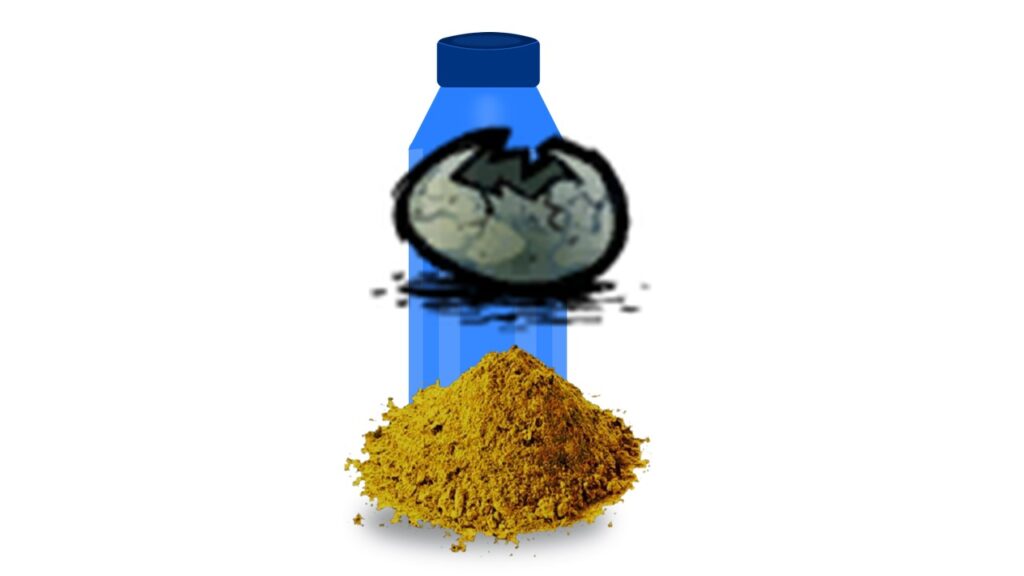
Bottled Water Smells Like Rotten Eggs
If your bottled water smells like rotten eggs, this could be a sign of contamination by sulfur compounds. Sulfur is a naturally occurring mineral that is present in many water sources, including groundwater and wells.
When sulfur is present in water, it can react with bacteria or other substances to produce a gas called hydrogen sulfide. This gas has a distinct smell that is often described as similar to rotten eggs or sulfur.
While small amounts of hydrogen sulfide in water are not harmful to human health, they can be unpleasant to smell and taste. If you detect a strong sulfur smell in your bottled water, it’s important to stop drinking it and contact the manufacturer to report the issue.
The manufacturer should be able to provide information on any potential contamination issues and may offer a refund or replacement for the affected product. Additionally, it’s a good idea to have your water tested to ensure that it is safe to drink and does not contain harmful levels of contaminants.
Why Does Bottled Water Taste Bitter
There are a few reasons why bottled water may taste bitter. One common reason is the presence of minerals in the water.
Some minerals, such as calcium and magnesium, can give water a bitter or metallic taste. These minerals are often found in hard water and can be more noticeable in bottled water that has not been properly filtered or purified.
Another reason for a bitter taste in bottled water could be due to the plastic container it is stored in. If the plastic container is made of low-quality materials or has been stored in high temperatures, it can release chemicals into the water that affect its taste and quality.
Additionally, if the water has been stored for an extended period of time, it can begin to develop a bitter taste due to the growth of bacteria or other contaminants.
To improve the taste of bitter bottled water, it is recommended to use a water filter or choose a high-quality brand that has undergone rigorous filtration and purification processes.
It is also important to store bottled water in a cool, dry place away from direct sunlight and to avoid drinking water that has been stored for an extended period of time.
Bottled Water Smells Musty
If your bottled water smells musty, it could be a sign of mold or mildew contamination. Mold and mildew thrive in moist and warm environments, and if the water bottles are not stored properly, they can develop mold or mildew growth.
Mold and mildew can produce a musty smell that is often described as earthy or damp. In addition to the unpleasant smell, mold and mildew can also pose health risks, especially for people with allergies or respiratory issues.
To prevent musty smells in bottled water, it is important to store the water in a cool and dry place, away from direct sunlight and heat. It is also important to use high-quality bottles that are made of materials that are less prone to mold and mildew growth.
Additionally, it is recommended to consume the water within its expiration date and to dispose of any bottles that have been opened for an extended period of time. If you detect a musty smell in your bottled water, it is best to discard it and contact the manufacturer to report the issue.
The Bottom Line
There are various alternatives to bottled water, such as home filtration systems, tap water, refillable water bottles, and water coolers, that provide safe and clean drinking water while also being cost-effective and environmentally friendly.
By choosing one of these alternatives, you can improve the taste and quality of your drinking water and help reduce plastic waste, contributing to a healthier and more sustainable future.
